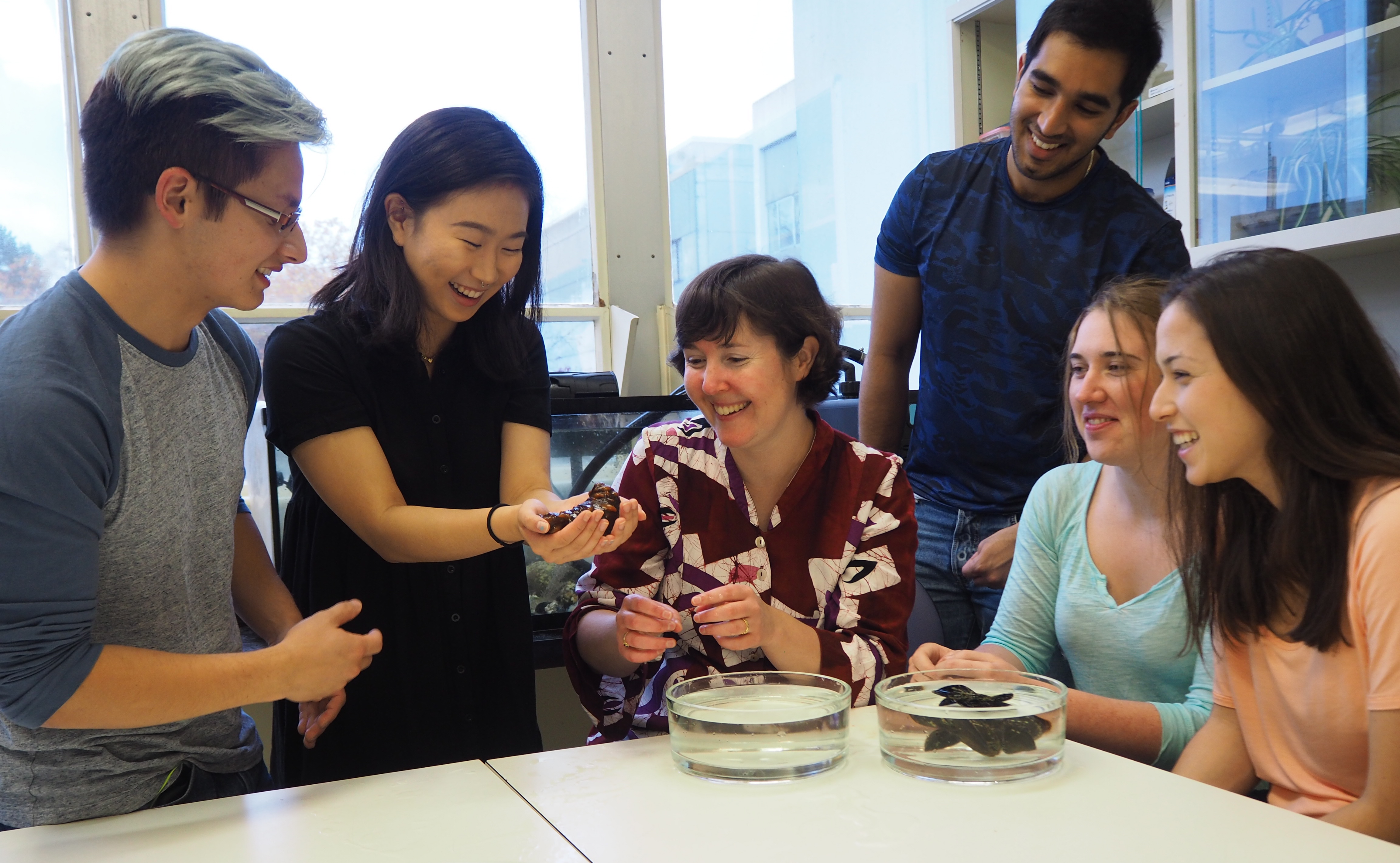How an award-winning UBC prof gets students excited about science
August 14, 2018

August 14, 2018

Zoologist and teaching fanatic Angie O’Neill (BSc 01, MSc 05) fell in love with teaching in 2001, as a TA. That passion has earned O’Neill two Faculty of Science Killam Prizes for Excellence in Teaching, and high praise from her students.
Giving students a chance to apply what they are learning, to practice their problem-solving skills. You explain the general theory, but then you share interesting examples. You encourage students to ask questions. Students should also be able to talk to each other, to make predictions. The goal is to get students to think about what they’re learning, not to just write it down and memorize it. If you were preparing to take a driver’s license test, you wouldn’t just study the car manual, you would practice driving the car. Learning science is like that too, you need to practice your critical thinking.
Invertebrate zoology. People don’t know as much about invertebrates, so it’s possible to show students animals that they’ve never even imagined. There’s a great diversity of body structure, of function, so many neat examples of convergent evolution.
Sea urchins. People have seen them — they look like a moving pin cushion, and at first glance they don’t seem very exciting. But if you examine them under the microscope while they’re in water, you see their spines are moving. And their skin is covered in pedicellariae, which are tiny jaw-like structures that help with grooming. The pedicellariae look like a field of tulips swaying in the water — except that these tulips can bite. Urchins have these tube feet, these tiny suction cups that grip surfaces and pull them along. We’ve got appendages with big muscles, they’ve got hundreds of tiny little appendages which are controlled by changes in water pressure.
Biology isn’t a bunch of facts. It’s a process of discovery and understanding. I like it when students realize there’s so much we don’t know yet, so much that hasn’t been studied. There are so many research projects out there, just waiting to happen — if you’re interested.
We honour xwməθkwəy̓ əm (Musqueam) on whose ancestral, unceded territory UBC Vancouver is situated. UBC Science is committed to building meaningful relationships with Indigenous peoples so we can advance Reconciliation and ensure traditional ways of knowing enrich our teaching and research.
Learn more: Musqueam First Nation